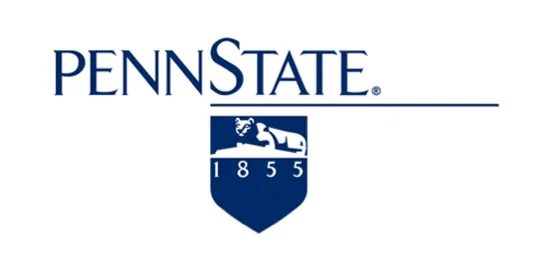Training in Clinical Neuropsychology
Clinical Neuropsychology is an application of cognitive neuropsychology and represents a sub-specialty area within clinical psychology. Clinical neuropsychology involves the evaluation and treatment of individuals with neurological and/or psychiatric problems. Neuropsychology at PSU focuses on clinical training of graduate students in clinical neuropsychology and clinical neuroscience and multiple internally and externally grant funded research endeavors headed by Drs. Peter Arnett and Frank G. Hillary.
Specialization in Cognitive and Affective Neuroscience (SCAN program)
All SCAN students will take our courses in Foundations of Cognitive-Affective Neuroscience and Methods in Cognitive-Affective Neuroscience, both of which will start being offered every year starting in 2005-2006. Additionally, SCAN students will have to do one of two things: either take the biology sequence in our Biobehavioral Health department (469, 470), which would be done before taking the Foundations and Method sequence, or take one additional 500-level psychology course related to SCAN.
For the lab rotation, all SCAN students must complete two semesters of research with SCAN faculty other than their advisor. This can be done by working with one person for two semesters or two people for one semester each. This minimum of three courses and two semesters of research match the minor version of the Psychology Department’s breadth/minor requirement. Furthermore, by requiring that these semesters be with faculty other than the advisor, SCAN students will also meet the Department’s one-year-of-research-with-someone-other-than-the-advisor requirement.
Besides these requirements, SCAN students are expected to participate in our every-other-week Brain Bunch talks, and to give a presentation to this group at least once before leaving. In addition to the year lab rotation, SCAN students are expected to have a SCAN-related component to either or both of their Masters and PhD. Furthermore, at least one SCAN faculty member other than the advisor should be on the committee concerned with the project (or projects) that meet this requirement.
Student Awards
- Meg Cadden - Congratulations to Meg Cadden who was awarded the 2015 Scott and Paul Pearsall Scholarship from the American Psychological Foundation (APF). Meg will use the scholarship to conduct her study on the stigma people who have Multiple Sclerosis (MS) suffer. Her study, "Judgment Hurts: The Physical and Psychological Consequences of Experiencing Stigma in MS," aims to clarify the relationship between stigma and depression in individuals with varying degrees of physical disability related to Multiple Sclerosis.
Dede Ukueberuwa - Congratulations to Dede Ukueberuwa, who won a Graduate Student Dissertation Support Award in the fall of 2013 to support her dissertation research. She also received the Psychology Department's Wisniewski Family Enhancement Fund Award for mental health research in spring 2015.
Victoria Merritt - Victoria won third place for her poster presented at the Penn State University Gradate Research Exhibition in the Social and Behavioral Sciences division in 2013. She was awarded the Scott Mesh Honorary Grant for Research in Psychology and received the Benton-Meier Neuropsychology Scholarship through the American Psychological Foundation in 2014. Victoria was awarded an APA Dissertation Award in 2015 and also received a Graduate Student Dissertation Support Award to fund her dissertation research in 2015.
Cristina Roman - Cristina's poster entitled "Decreased White Matter Integrity Predicts Hyperconnectivity Following TBI" was awarded the Student Liasison Meritorious Presentation Award at the 42nd Annual International Neuropsychological Society conference. In addition, Cristina received an academic scholarship from the Penn State Almuni Association, Los Angeles Chapter in 2014. In 2015, she received the Martin T. Murphy Award for Excellence in Clinical Psychology and Julius and Philip Epstein Endowed Scholarship. Most recently, Cristina was one of twelve individuals selected (worldwide) to partake in the Multimodal Neuroimaging Training Program at The University of Pittsburgh/Carnegie Mellon.
Gray Vargas - Congratulations to Gray Vargas, who won a Graduate Student Dissertation Support Grant from Penn State in the fall of 2012 to support her dissertation research. She also won the Best Student Poster Award at the National Academy of Neuropsychology conference in 2011. Gray also was the 1st place winner in Social and Behavioral Sciences for her poster presented at the Penn State University Graduate Research Exhibition, March 29, 2009. Most recently, Gray was awarded the Herndon Award for Outstanding IJMSC Article for her 2013 article entitled "Attributional Style in Multiple Sclerosis: Examining the Learned Helplessness Model." This award is given by the Consortium of Multiple Sclerosis Centers (CMSC) for the best article published in this journal during the preceding calendar year.
